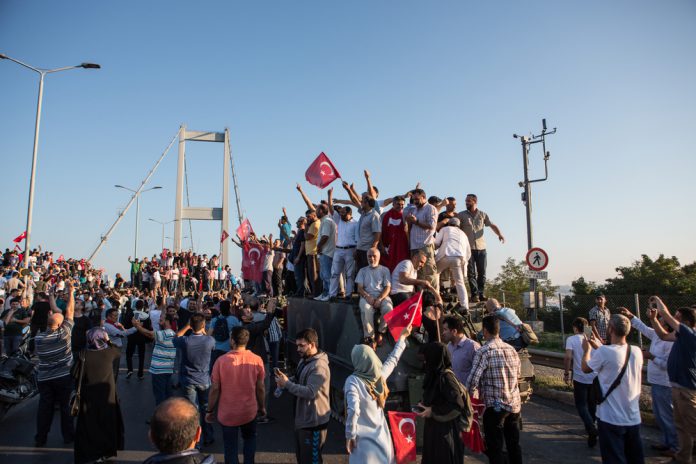The Turkish government have accused Leaders of the Turkish HDP party Selahattin Demirtas and Figen Yuksekdag of distributing propaganda for militants fighting against the Turkish regime.
Despite the accusations, the leaders and the 10 other arrested parliamentary individuals denied any links to the PKK Kurdish rebel group. Nevertheless, all individuals were arrested and detained for refusing to cooperate with prosecutors investigations.
Shortly following the arrest of Mr Demirtas, a large car bomb explosion killed eight people and injured over 100 victims. After the arrests, the police have had to contain a number of riots protesting the detentions with demonstrations Istanbul and Ankara.
In response to the repressive measures, HDP lawmaker Adem Geveri told AP news agency that the government was intent on prohibiting parliament from fulfilling its role in providing democratic opposition to in turn create “an authoritarian Turkey”.
According to the BBC, their correspondent in Turkey Mark Lowen said that “the arrests represent a major escalation of a clampdown that has seen Kurdish media closed down and the mayor of Diyarbakir arrested.”
Turkey remains under a state of emergency following an attempted coup against the Erdogan government back in July. In the weeks following, Turkey has been condemned by the world leaders for its increasingly repressive nature. The Turkish government in the week following the failed coup, detained around 7,500 individuals which led to the sacking of more than 9,000 officials as it continues to purge any perceived anti-government officials. Those prosecuted have been targeted for harboring alleged connections to Fethullah Gülen, a preacher based in the U.S, that the Turkish government have pinpointed as a significant player in the July coup attempt.
This latest series of arrests continues the crackdown on the people’s liberty in Turkey, and represents a worrying development for the international community. The detentions have been strongly condemned by Germany and the European Union.

